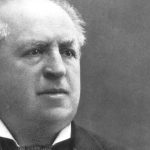
In what manner are governments to obtain knowledge of the eternal principles presented to us in God?s Word? Three answers are conceivable.
Theocracy
First, one might say: The task of the church is to show in what manner. This is the answer given by Rome.
Rome has never denied that government has a right to independence of judgment in its own affairs. But as soon as it is a question of primary, eternal principles, Rome has always reserved the final decision to herself. Reserved to herself, not just in the acceptable sense of recommending and urging her decision, but of wielding an authority that is rightfully hers. This authority may factually be set aside, but never with impunity from a spiritual point of view. Think of Syllabus and Encyclical!
Now then, we are diametrically opposed to this solution. We do not wish that any Reformed church be given the right to decide what the divine ordinances for government are.
To have an opinion is the church?s right. Her right to propagate her views within the spiritual sphere remains undisputed. And on occasion nothing prevents the church from approaching the government with a petition or a complaint regarding political issues.
But the church can never be given the authority in her own right to determine what should obtain for the state. That would cause a terrible confusion of the two spheres of life.
In a mixed community we do not desire a theocracy; rather, we oppose it with all our might, for two cogent reasons: (1) Wherever such church rule was established, it always ended in tyranny and the corruption of a people. (2) The church lacks the gifts required for giving laws for civil society that evince intimate knowledge and understanding of civil life.
Caesaropapism
A second answer might be: Let government itself be the church! This solution is known as caesaropapism and has been adopted especially in Russia. The Russian czar is emperor and pope, that is, sovereign and high priest, or if you will, government and church, combined in one person.
This prevents clashes. The church retains its influence but cannot exercise it except through the sovereign. Its influence, therefore, is a sham.
In Russia it is indeed the czar, either in person or through his agents, that determines what shall count as divine ordinance in his realm. The Russian church serves only to accredit this for the common laity.
On a different scale this caesaropapism was also introduced by Protestant rulers, particularly in Germany, and it must be said to our shame that during the events of 1816 even our foremost pastors were far from unwilling to follow King William I on his questionable steps toward caesaropapism.
This system, too, we reject most resolutely. It can only lead to the spiritual death of the church and thus to loss of spiritual knowledge of God?s Word as it pertains also to government. Caesaropapism deprives the church of Christ of her freedom of movement, which is one of her vital conditions. It turns her pastors and teachers as if by magic into vapid and haughty magistrates, and turns believers and their church government into each other?s enemies. This weakens the church, causes her to pine away, and numbs her spirit.
Just look at what is left of vitality in the Greek Orthodox church! Consider the piteous state of the Evangelical churches in Germany. Remember how fatal the tender embrace of our national church has been as practiced by our ever so religion-minded government.
When the church languishes, we lose that fresh spiritual atmosphere in which alone the sound interpretation of the Word of God can flourish. What we end up with is the drone of Byzantine chanting or, as in our country, with Jewish teachers educating our youth in ?Christian? virtues.
We want to be inspired, not put to sleep. We seek God?s glorious ordinances, not hollow words or empty phrases. We therefore oppose this second, even worse solution with conviction and force.
The Conscience of the Government
The antirevolutionary party has always given the third answer: government authority is bound to the ordinances of God by way of the conscience of the government.
We are well aware that the possibility exists that a government?s conscience is totally inaccessible to influences of God?s Word. It is possible that the government even of a ?Christian? nation falls away from the faith altogether and blatantly turns against the Christian religion, or under a Christian mask wages an even more bitter?and more dangerous, while hidden?war on whatever lives by God?s Word. But this problem cannot detain us, for the obvious reason that this possibility exists just as much with the two previous solutions, only here in a more hideous, offensive, loathsome manner.
The problem is not due to the system but to the wretchedness of our conditions. Barring exceptional circumstances, it is a case of one of two things: either it is the natural chastening by which a nation that has forgotten God?s Word is driven back to that Word; or else, if the confessors of God?s Word form only a small minority in that nation, it is the heaven-sent spur to work hard for enlarging its influence.
* * *
Adapted from Our Program: A Christian Political Manifesto by Abraham Kuyper, translated and edited by Harry Van Dyke. This volume is part of a major series of new translations of Abraham Kuyper?s key works in public theology, completed in partnership with the Kuyper translation society and the Acton Institute. Learn more.





